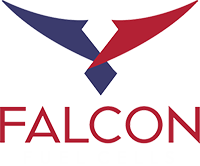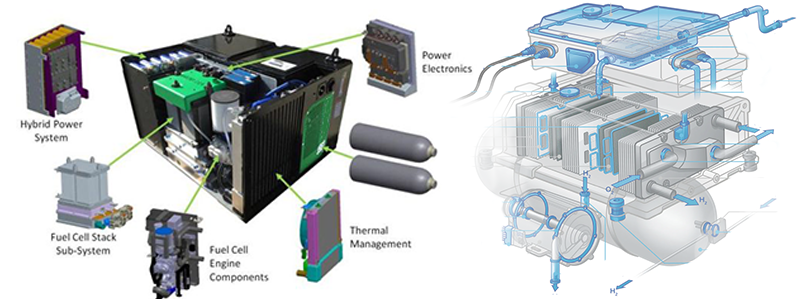Our Story
Falcon Fuel Cells
In 2012, doctoral research began on the design of a fuel cell system that could be used for residential applications. This required a design focused on high reliability, portability, and ease of use. We quickly recognized that if any fuel cell system were to be adopted, it must run using widely available fuels. Falcon developed a functional system utilizing high-temperature proton exchange membrane (HT-PEM) technology capable of running on many different fuels including hydrogen, propane, and other hydrocarbons. Fuel flexibility paired with high energy densities allows our fuel cell system to power UAVs that fly up to ten times farther than UAVs powered with conventional technologies.
Falcon Fuel Cell Milestones
After years of research and grant funding, Falcon is ready to power up.
US Patent # 10,622,654 issued April 14, 2020 (Licensed)
DOD AFWERX AF Ventures SBIR Grant
FuzeHub Grant for Membrane-electrode assembly (MEA) Manufacturability (with RIT)
Prototype of a Propane-based High Temperature PEM Fuel Cell System
NEXUS-NY Clean Energy Accelerator Program
RIT related research includes:
NYSTAR Funded Research: Fuel Cells for UAS Performance and Durability Assessment
Staples Sustainable Innovation Lab Funding: Advanced UAS for Sustainable Forest Management
NIST funded research on HT-PEM performance, durability, and system integration
Learn more about Our Team.






